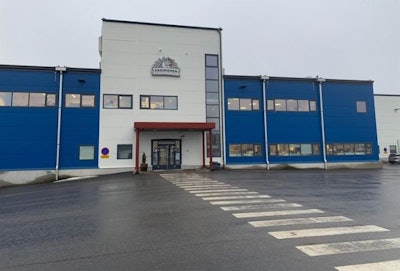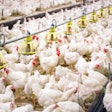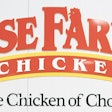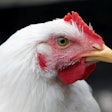
For the financial year just ended, Finland-based meat company HKScan reports increased earnings and profitability. Following recent divestments, the group is pursuing a strategy focusing on growing sales of poultry and value-added products.
For the October-December quarter of 2023, HKScan reports its net sales for continuing operations declined by 1.4% year-on-year to EUR302.0 million (US$325.6 million).
The company reports that while overall sales and those to food service were similar to the corresponding period of the previous year, volumes sold via the retail channel were higher year-on-year. Reduced volumes sold as exports and industrial channels were planned.
Compared to EUR1.7 million for the same period of last year, Earnings Before Interest and Taxes (EBIT) for the group as a whole improved significantly to EUR3.0 million.
HKScan reports that its production costs for the quarter remained high, despite energy prices falling back.
For continuing operations, comparable EBIT was turned from a negative figure of EUR200,000 for the fourth quarter of 2022 to EUR2.8 million for the three months just ended. At EUR6.3 million, a significant improvement was reported in this metric for the Finland business unit, while that for Denmark slipped to a negative figure of EUR100,000.
Improvements in efficiency, cost savings in 2023
Commenting on the results for the January-December period, HKScan CEO Juha Ruohola reported that the group had maintained efforts to improve production efficiency and save costs throughout the year. This, he said, improved both EBIT and profitability.
At more than EUR1.163 billion, the company’s net sales for the 12 months of 2023 were 6.0% higher year-on-year. By the last quarter, selling prices had fallen back in line with the previous year, having been much higher than the comparable period during the early months of last year. Cost levels remained high throughout 2023, according to Ruohola.
Overall EBIT for HKScan’s continuing operations were reported at EUR17.4 million — a significant turnaround from the previous year’s negative figure of EUR2.6 million.
For the full year, comparable EBIT improved significantly for both of the group’s business units. For Finland and Denmark, the figures were EUR20.5 million and EUR3.3 million, respectively. For comparison, these were reported at EUR4.3 million and EUR1.4 million, respectively, for the 2022 fiscal year.
The board of directors is proposing that no dividends will be paid for 2023.
Ruohola highlighted that, while EBIT showed considerable improvement in 2023, profitability of the business has been unsatisfactory.
For 2024, he announced that HKScan’s priorities will continue to be on managing costs, improving production efficiency, and optimizing the product portfolio to match changing consumer demands.
Recent business divestments have strengthened the group’s balance sheet, he said, and will be used to repay the company’s loans.
Following the sale of Swedish business in 2023, poultry is set to contribute an increasing share of HKScan’s net sales. This — together with increasing added value — is among the group’s strategic targets, according to Ruohola.
More on HKScan
With annual slaughterings of 95 million birds, Finland-based HKScan is among the largest 30 poultry companies in Europe, according to WATTPoultry.com’s Top Poultry Companies survey. The firm produces chickens, ducks, and turkeys.
According to the company’s own web site, HKScan has adopted a strategy to grow into a versatile food company, and to produce food using more climate-friendly methods. Serving its home markets of Finland and Denmark is a workforce of around 3,600. Among its brands are HK, Kariniemen, Via and Rose.
One month ago, it was announced that Lantmännen had acquired all of HKScan’s operations in Sweden, including the brands Scan, Pärsons, and Bullens.
This divestment followed just a few months after HKScan closed the sale of its Baltic businesses in Estonia, Latvia, and Lithuania to the Maag Grupp of Estonia in August on last year.
In November of 2023, HKScan plants were authorized for the export of poultry and pig meat to China.
Ruohola was officially appointed CEO of HKScan in March of last year.

















